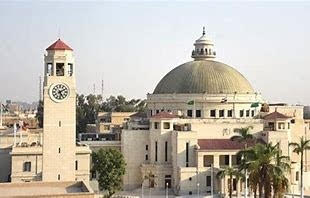Sam Wang and Joshua Gold
During the last days of the election campaign, opinion polls continued to identify a substantial fraction of voters who considered themselves “undecided.” Although their numbers were dwindling, they could determine the outcome of the race in some states. Comedians and other commentators have portrayed these people as fools, unable to choose even when confronted with the starkest of contrasts.
Recent research in neuroscience and psychology, however, suggests that most undecided voters may be smarter than you think. They##re not indifferent or unable to make clear comparisons between the candidates. They may be more willing than others to take their time – or else just unaware that they have essentially already made a choice.
Neuroscientists have begun to tease out the brain systems that make decisions. Even when it takes no more than a second, decision-making is thought to involve two parts, gathering evidence and committing to a choice.
In tasks as simple as deciding whether a shifting pattern of dots is moving to the left or to the right, brain activity in the parietal cortex rises as evidence is gathered, eventually reaching a tipping point (though it’s not yet known which brain regions drive the final choice).
Inherent to this process is a trade-off between speed and accuracy. Commit early and you can get on with your life. Take more time and you might make a wiser or more accurate decision.
Since a commitment to John McCain or Barack Obama was not required until Nov. 4, for the greatest accuracy, one should gather evidence until that date. So then why aren’t there even more undecided voters?
In measurements of decision-related neural activity, after there is enough evidence to reach a person’s decision threshold, his brain can ignore further input even when it might improve accuracy. The brain goes ahead and decides, freeing up mental resources to deal with other problems.
This logic suggests that undecided voters might simply require a higher degree of confidence before they commit. Pollsters know this, and so push “uncommitted” voters to state a preference.
Although this approach may seem heavy-handed, it gives a fairly accurate reading of a candidate’s support. In psychological studies, people who describe themselves as undecided often reveal a pronounced preference when they are forced to choose. When someone reports being only “moderately sure” of a decision like whether to accept a new job, his eventual choice is all but certain.
Still, the person may not be aware of that internal commitment. In one study, people were asked to play a gambling game in which they could choose cards from several decks, some of which were secretly stacked against them. After losing repeatedly, most subjects began to nervously avoid the less favorable decks but were unable to say why until after much further play. People with damage to the ventromedial prefrontal cortex lack this intuition, and so they take inordinate time to make decisions in general.
Of course, undecided voters aren’t suffering from brain damage, it’s just that their brains may require an especially long amount of time to develop confidence in or awareness of a choice.
In these cases, hidden commitments can be queried in creative ways. In a recent study, 33 residents of an Italian town initially told interviewers that they were undecided about their attitude toward a controversial expansion of a nearby American military base. But researchers found that those people’s opinions could be predicted by measuring how quickly they made automatic associations between photographs of the military base with positive or negative words.
If decisions are lurking somewhere in the brains of undecided voters, could brain imaging methods reveal their inclinations?
Not yet. Recent research has shown that when undecided voters looked at images of candidates, their brains’ emotional centers were often activated. But this reveals little information about the content of their thoughts. Such research serves mainly to demonstrate how hard it is for scientists to physically trace complex concepts like preference.
It is more effective to pose indirect questions. Pollsters can learn which way “undecided” voters lean by using questions they already ask that are likely to correlate with support for either candidate: Who do you think understands your problems better? Are you more concerned about the economy or terrorism? Which candidate has the better temperament? The answers of decided voters could be used to predict the final choice of undecideds.
No matter how deeply they delve into people’s thought processes, however, polls will never be perfect predictors of election results.
Like the brain of an undecided voter, the electorate as a whole may lean toward one candidate or another, but until the ballots were cast on Nov. 4, it remained undecided.
____________________________________________________________________
Sam Wang is an associate professor of neuroscience at Princeton University. Joshua Gold is an assistant professor of neuroscience at the University of Pennsylvania. The New York Times (abridged)











